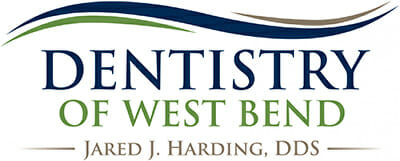We always do everything we can to help our patients preserve their natural teeth. Sometimes, however, tooth extraction is the only treatment option available for avoiding the development of further health complications. If you need to have a tooth extracted, consider the following advice for preparation and recovery to ensure you have the best possible experience and a swift recovery.
Is Tooth Extraction Painful?
We use a local anesthetic to ensure patients experience no pain during tooth extraction procedures.
How to Prepare for a Tooth Extraction
Ask Questions
If you have any questions, feel free to ask your dentist during your consultation appointment before your tooth extraction. If you think of something later, we always welcome you to contact our office. Having all of the information you need can help you relax and feel more comfortable leading up to and on the day of your tooth extraction.
Discuss Your Medical History and Medications
It’s important for our dentist to have your complete medical history and a comprehensive list of all the medications and supplements you currently take. This information is essential to ensuring your appointment goes smoothly and safely.
It is especially important that you notify us if you have any of the following conditions that can make a patient more susceptible to infection:
- Congenital heart defect
- Bio or mechanical heart valves
- History of bacterial endocarditis
- Liver disease
- Artificial joint replacements
- Weakened immune system
Additionally, it’s important to provide us with a list of all the medications and supplements you are taking so that we can be aware of any possible side effects that could complicate the procedure or potential drug interactions with an anesthetic or sedatives. If you take any blood thinners, we might recommend that you stop use before your appointment and possibly even during part of your recovery.
Ask About Anesthetics and/or Sedatives
It’s a good idea to talk with our dentist about your medication plan for the day of treatment. Most tooth extractions are performed with patients fully numbed using local anesthetic. (Surgical extractions that take place outside of our office might require general anesthesia.)
If you experience dental anxiety or feel especially anxious about your upcoming tooth extraction appointment, we can talk with you about your sedation dentistry options that are designed to help you have a more pleasant experience during treatments.
Arrange Transportation
We typically recommend that patients arrange for transportation to and from their tooth extraction appointments. This is a requirement if you plan to receive a sedative to assist with relaxation during your treatment.
Dress Comfortably
Dress comfortably on the day of your appointment. It’s also advisable not to wear jewelry, contact lenses, or dark lipstick. It’s also most comfortable to have your hair pulled back from your face.
Tooth Extraction Recovery Tips
Carefully Follow Recovery Instructions
Every patient is different and has slightly different recovery needs. So, it’s important that you carefully follow the post-operative recovery instructions provided to you after your appointment. These instructions are intended to help mitigate pain during recovery and also help you avoid complications while you heal.
Bite Down on Gauze Following Your Procedure
After tooth extraction, it’s important for a blood clot to form in the empty socket in the jaw, where your tooth used to be. To encourage the formation of this socket, the patient should bite down on soft gauze for about 30 minutes after the extraction. Once bleeding has stopped, it is fine to gently remove the gauze.
Keep the Extraction Site Clean
Until the socket has healed completely, it’s also important to keep the extraction site clean as a part of your daily oral hygiene routine. We provide our patients with oral irrigators that can gently spray the site with water to dislodge debris.
Avoid Hard, Hot, and/or Spicy Foods
After your tooth extraction, you should not eat any hard, hot, or spicy foods as these can further irritate and/or damage the delicate gum tissue around the extraction site. Only eat soft, cool or warm, and mild foods for a few days after your tooth extraction.
Don’t Use Straws
Sucking through a straw (or on anything) creates a vacuum inside the mouth that can dislodge the blood clot at your extraction site.
Keep Your Head Elevated
Elevating your head after the tooth extraction helps to prevent unnecessary swelling.
Don’t Use Alcohol or Tobacco
After tooth extraction, you should avoid alcohol (which can worsen inflammation) and not use any tobacco products until the extraction site has healed completely.
Over-the-Counter Pain Medications
Following most tooth extractions, over-the-counter non-steroidal anti-inflammatory pain medications are more than adequate for managing pain. If you experience more severe pain, contact our office right away.
Know the Signs of Potential Complications
With proper care and adherence to aftercare instructions, complications are rare. However, they can happen. Potential complications following a tooth extraction include:
- Infection
- Dry socket
- Nerve injury
- Delayed healing
- Perforation of the maxillary sinus
If you experience severe pain or swelling or signs of an infection (fever, swollen lymph nodes, or visible pus at the extraction site) contact our office immediately.
Tooth Extraction With Our Dentist in West Bend, Wisconsin
At Dentistry of West Bend, we do everything we can to help keep our patients healthy to preserve their natural teeth. Sometimes, however, extraction is the best treatment option available to prevent more severe health complications. Our dentist is highly experienced and uses a gentle touch. During tooth extraction procedures, we ensure patients experience no pain with the thorough application of local anesthetic, and we can help alleviate stress with our variety of sedation dentistry options.
To learn more about tooth extraction, preparation, and recovery or to schedule a consultation with Dr. Harding, we welcome you to contact Dentistry of West Bend today.


Recent Comments